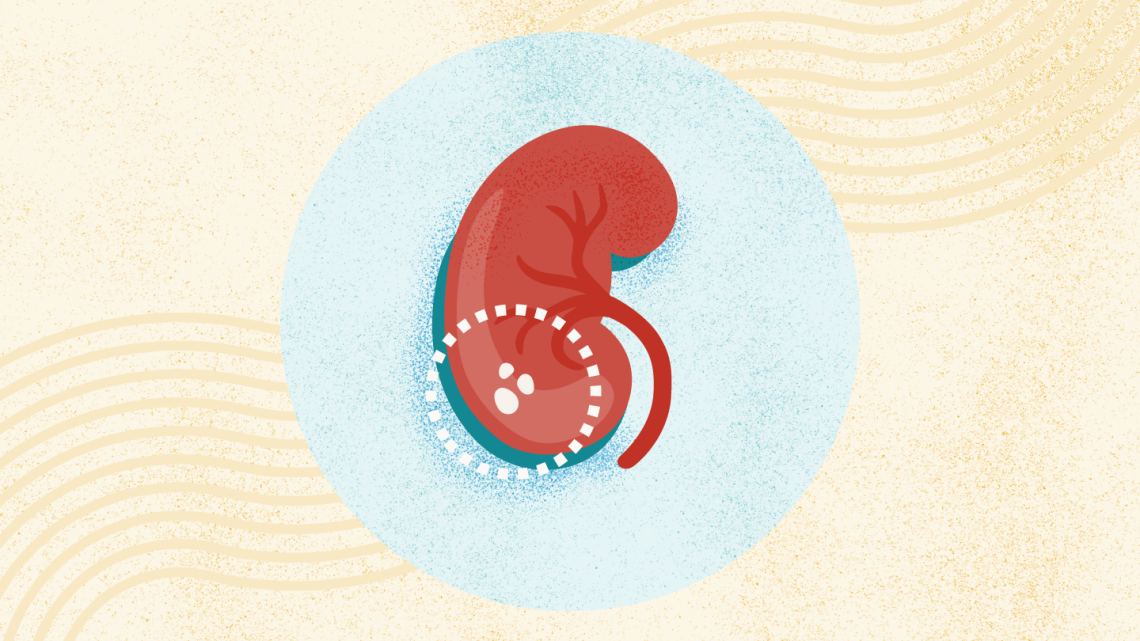Introduction
Kidney stones are a common urological problem caused by a variety of factors, including diet, genetics, and dehydration. However, certain underlying medical conditions can significantly increase the risk of developing kidney stones. Understanding these conditions is essential for effective treatment and prevention of recurrent stones. This article explores key medical disorders linked to kidney stones, focusing on hyperparathyroidism and urinary tract infections (UTIs), as well as other notable conditions.
How Underlying Conditions Influence Kidney Stone Formation
Kidney stones form when urine becomes supersaturated with minerals and salts, leading to crystal formation. Underlying diseases can alter the balance of urine chemistry, promote infection, or affect kidney function, making stones more likely.
1. Hyperparathyroidism and Kidney Stones
What is Hyperparathyroidism?
Hyperparathyroidism is a condition characterized by overactivity of the parathyroid glands, which regulate calcium levels in the blood through parathyroid hormone (PTH) secretion.
- Primary hyperparathyroidism occurs when the glands themselves malfunction (e.g., benign tumors).
- Secondary hyperparathyroidism happens due to other causes like chronic kidney disease.
How Does It Cause Kidney Stones?
- Excess PTH causes increased calcium release from bones, increased calcium absorption from the gut, and decreased calcium excretion by the kidneys.
- This leads to high blood calcium levels (hypercalcemia) and increased calcium in urine (hypercalciuria).
- High urinary calcium promotes calcium stone formation, especially calcium oxalate and calcium phosphate stones.
Symptoms & Diagnosis
- Symptoms may include kidney stones, bone pain, fatigue, and digestive issues.
- Diagnosis involves blood tests showing elevated calcium and PTH levels and urine tests showing high calcium.
Treatment
- Surgical removal of the overactive parathyroid gland(s) is the definitive treatment.
- Managing kidney stones involves hydration, dietary changes, and sometimes medications.
- Monitoring calcium and kidney function is critical.
2. Urinary Tract Infections (UTIs) and Kidney Stones
What Are UTIs?
UTIs are infections of the urinary system caused mainly by bacteria, commonly E. coli. They can affect the bladder, ureters, or kidneys.
Connection to Kidney Stones
- UTIs can cause struvite stones, also known as infection stones.
- Certain bacteria produce an enzyme called urease that breaks down urea into ammonia, raising urine pH and leading to the formation of magnesium ammonium phosphate (struvite) crystals.
- Struvite stones grow rapidly and can form large, branching staghorn calculi that fill the kidney’s collecting system.
Symptoms & Diagnosis
- Recurrent UTIs, cloudy or foul-smelling urine, fever, and flank pain.
- Diagnosis involves urine culture, imaging studies, and stone analysis.
Treatment
- Aggressive antibiotic therapy to clear the infection.
- Surgical removal of stones, as they rarely pass spontaneously.
- Long-term prevention includes managing infections and good urinary hygiene.
3. Other Underlying Conditions Associated with Kidney Stones
a) Metabolic Disorders
- Renal tubular acidosis: A condition where kidneys fail to acidify urine, increasing stone risk.
- Gout: Elevated uric acid can lead to uric acid stones.
- Cystinuria: A genetic disorder causing cystine stones due to abnormal amino acid transport.
b) Digestive Diseases
- Conditions like Crohn’s disease, ulcerative colitis, and bariatric surgery can alter absorption, increasing oxalate absorption and stone risk.
c) Obesity and Diabetes
- Metabolic syndrome and insulin resistance lower urine pH, increasing uric acid stones.
Why Identifying Underlying Conditions Matters
Treating only the stones without addressing root causes leads to frequent recurrences. Identifying and managing underlying conditions helps:
- Prevent new stone formation
- Reduce complications
- Improve overall health outcomes
Diagnostic Approach
- Detailed medical history and physical exam
- Blood tests for calcium, uric acid, and electrolytes
- Urine tests for pH, crystals, and infection
- Imaging (ultrasound, CT scan)
- Stone analysis after passage or removal
Conclusion
Kidney stones are often more than just a standalone problem—they can signal underlying medical conditions like hyperparathyroidism or recurrent infections. Early detection and management of these conditions are essential for preventing recurrent stones and protecting kidney health. If you have frequent stones or associated symptoms, consult your healthcare provider for a comprehensive evaluation.
FAQs:
How does hyperparathyroidism cause kidney stones?
It raises blood calcium levels, leading to excess calcium in urine that forms stones.
What type of stones are linked to urinary tract infections?
Struvite stones form due to bacteria that increase urine alkalinity.
Can gout increase my risk of kidney stones?
Yes, gout causes high uric acid, which can lead to uric acid stones.
Why do digestive diseases affect kidney stone risk?
They increase oxalate absorption, raising the chance of calcium oxalate stones.
Should I get tested for underlying conditions if I have recurrent stones?
Yes, identifying causes helps prevent recurrence and guides proper treatment.






